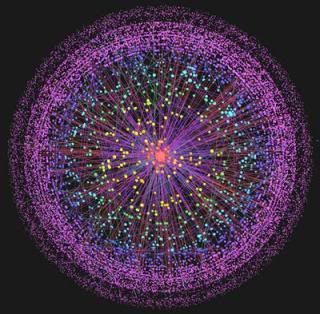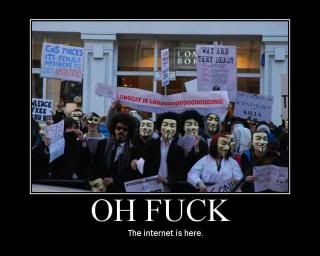But first, let's kick it off with a good starter tune. Crank the base on this one:
Trentmøller--The Forest
The Frankfurt school--although difficult to categorize singularly--introduced a kind of Theory/Critique that centered around a questioning of how any authentically contrary critique might be conducted in the ubiquitous context of a contemporary society; or, how a sensible critique might possibly manifest from an individual embedded in society. The problematic of this embededness opened a necessary space for auto-critique from any given critic. The Frankfurt School saw mass culture as synonymous with Ideology. Additionally, the Frankfurt School examined this more specifically in light of the advent of mass-media in the early 20th century.
Worth noting as well, the Frankfurt School mediated the balance between the technical, economic, material and the manifest, symbolic and subject-effecting. This spawned out of the conflict inherent betweenMarxist/Historical Materialist and Freudian/psychoanalytic traditions wherein one argued a determinism via economics/class struggle on a molar level and the other argued determinism via the Psychodynamic forces of individuals on a molecular level. Ín rejecting the Hermeneutic tradition due to its 'fetishistic' focus on Textuality and Subjectivity, they attempted to remain grounded in the purportedly 'scientific' discourse of historical materialism whilst remaining cognizant of individual and group psychodynamics....or something like that...yeah?
In an Essay, The Culture Industry: Enlightmenment as Mass Deception which can be found in this book, Theodor Adorno and Max Horkheimer coined the term culture industry to describe how the processes of production of a culture are explicitly determined by the very resources and technologies of the mass media. This mass media in turn was an insidious medium under which individuals were repressed and not emancipated. The primary consequence of this was the generation of cultural homogeneity or the blurring of cultural and class distinctions by the narrowing down of individual spontaneity though the standardization of aesthetic/cultural appeal; and the consequent predictability of the masses through said standardization.
I call attention to Horkheimer/Adorno's notion of the culture industry to reveal the potentials for correctness therein; more importantly to lay bare the assumptions and straight-up inaccuracies of such a notion (as well as to lay bare that Adorno is a jerk!).
Contrary to the presumptions of the culture industry, Herbert Marcuse proposed what he called affirmative culture, a culture sought through forms of art that transcend the snobbery of traditionally cannonical forms of 'art' by defying (deliberately or not) the traditional aim of art at demonstrating technical skill or art aimed at invoking an experience of 'beauty'(?) and instead confronted its audience with the limitations and potential for control inherit in contemporary experience and augment critical possibility by placing the viewer back into his or her own resources of personal experience and consequently that of society. Here we have Marcuse's analytical left hand.
And the right:
In Eros and Civilization: A Philosophical Inquiry into Freud, Marcuse responds to Freud's thesis in Civilization and its Discontents that the advancement of civilization, with the advent of more specialized labor, an increase in bureaucratic administration and more normative social conduct would result in increased psychological repression, resulting in pervasive aggression, neurosis and alienation by a more stratified and 'advanced' society. Blah, blah, blah--enforced by his theory of the instincts, etc...man is at conflict with himself in the midst of his assimilation into civilization. Yes, everyone still with me?
Marcuse took the biological drive out of Freud and argued that the potentially destructive dimensions of a more 'advanced' civilization theorized by Freud would be better understood as existing within the historical structures of a given culture, from whence can one better understand the potential for 'destructiveness'. More concretely, Marcuse drew attention to the fact that the extent of repression present in a society is directly related to the level of scarcity of a given population.
Now, Egypt and Iran, two differently similar countries caught up in a static dialectic of repression and revolt are clear examples of the principle Marcuse was talking about. Marcuse went on to discuss surplus repression(see: the Patriot Act, or any measure of the Iranian government and Mubarak) consequent of a more "modernized" society....
Because I wish not to go into Walter Benjamin, let me paraphrase:
"The development of such media as photography, sound recording and film signaled, for Benjamin, the dawn of a new epoch in the democratization of culture and hence in the revolutionary potential of the proletarian class"(Surber, 137)
Now..
If there was an immense failing of the Frankfurt School--Marcuse included--it was in their inability to identify the possibility for an item to be turned on itself....or in other words, humankind's greatest emancipator:

THE INTERNETZ
In other words, Adorno/Horkheimer's purported culture industry, one in which the tools and technologies of the media were instruments of control and repression failed to see what Benjamin saw as the "revolutionary potential for the ruling class"--seeing the potentiality of media through the lens of a controlled power-manipulator and not as a powerful tool of instantenious democratization. The internet additionally reinserts the individual/subject within his or her own social/media discourse by freeing him or her from power structures and 'leveling the playing field' so to speak...which leads me to everyone's favorite noone:
Anonymous

An instrument of terrorism? or a empty signifier signifying all and none? Or, in short, a proletarian revolution?
The shutting down of the internet in Egypt as well as the terse control of its use in Iran and China are articulations of Marcuse's connection between societal scarcity and it's consequent repression--particularly in light of a given culture's historical configurations. Additionally, maybe Marx was on to something (a somewhat latent something) when he argued that the expansion of technology under capitalism would go hand-in-hand with growing self-consciousness and ensuing political action on the part of the proletarian...but maybe he got it all wrong and the advent of humankind's greatest democratization, the internet is a demonstration that Historical Materialism missed the mark by failing to anticipate the Analog power potential of a Digital entity.
Maybe this is why Philosophy is dead: it has been imbued to the masses through an epiphenomena of a singular yet divided network or system. Is our supposed proletarian revolution an immaterial one?
What I can say however, is:

Circular Reeducation

